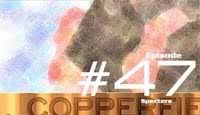
Three days in a suspension tank. That was Jiri’s estimate. Strip down to your skivvies and stand in the glass tube while the nano-goo pumps in around your feet and the suspension systems wired into your nervous system quickly put you under. See you in three days, Jiri had said, his smile soft and optimistic. She remembered seeing Myyaelae’s blank, austere face staring back at her from behind glass as a grey fogginess crept into her vision from the sides, carried her under the waves of a numb, dreamless sleep, a layer of mist between depthless grey oceans.
Three days.
It didn’t feel like three days. It felt more like three years, but then part of that was the surgical process that stretched on in a nanite-fogged dream for another fifteen hours beyond the tank. Experimental implants based on alien technology weren’t something you rushed. The gulfs between human technology and the technology of any XT species were as great and varied as the gene sequence patterns of the creatures that had dreamed them into existence. They reflected a unique and complex tree of thought and evolution which had sprung from the primordial ooze of wholly different planets and found a billion years or so in which to reproduce and diversify in wholly different directions. Mixing anything alien in origin with anything human took time, took emulation software and adaptive hardware. It wasn’t the kind of thing that you just built and slapped into someone’s body in the hope that it would work without a hitch, much less the kinds of disastrous consequences that had become less the exception and more the rule. It took surgical testing, a quasi-invasive nanite guided and driven procedure that was constantly integrating, testing, extrapolating, retesting, comparing against optimal performance models and adjusting, always adjusting molecule by molecule, until something close to flawless was achieved. The fact that Horus wasn’t just some cohesive chunk of technology that could be scooped out if something went wrong slowed down the process even more. Lacings took more time than straight installs simply because of their saturation, the way they became a part of the body, a network of a thousand artificial cells working together to serve a single purpose.
The dossier on Horus had been packed with all the details she had clearance to see as both major and test subject, but she hadn’t taken the time to do much more than skim it. Apparently it was designed to be piggybacked on another experimental implant that had been laced into her body, making the process of integrating the alien tech that much more time consuming and tedious. Hence the three days steeped in nanite goo, the fifteen hours wired into a bank of optical leads carefully monitored by close to a dozen serious-looking labcoats, and everything else they had plugged between her body and her berth.
And then, suddenly, she was awake.
“Ouch.” She breathed. Her voice came hoarse, eyes heavy. Jiri was at her side, his hands on the bar of her bed, face blank, tinged with traces of concern and curiosity that faded under his own haggard features, his tired eyes.
“Try not to move too much.” He said softly, and Tessa winced in response. Everything was tender, every inch of flesh infused with the warm burn of bruised flesh and day-old broken bones. “You’ve only been in post-op for about an hour.”
Lips cracked apart, just an edge, wet with the tip of a tongue eager to speak, but a spike of pain changed her mind and she nodded feebly instead.
“Rest if you can, Major.” Jiri smiled genially, the soft crease of grandparents and healers. “Your body just needs a little time to get used to the lacing.”
Just a little time. She swallowed weakly as the dull fog of sedation set in again, carrying her off to sleep.
Just a little time.





